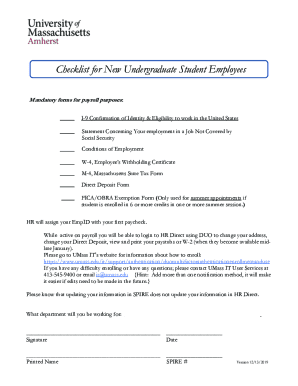How to Easily Obtain Case Paperwork: Step-by-Step Guide

Understanding the process of obtaining case paperwork can seem daunting, but it doesn't have to be. Whether you're a law student, a legal professional, or someone involved in a case, accessing these documents is crucial for proper legal preparation and representation. This guide will walk you through how to easily obtain case paperwork, ensuring you have all the necessary documents at your fingertips.
Step 1: Identify the Jurisdiction

Before you can request paperwork, you need to know which jurisdiction the case falls under. Jurisdiction refers to the geographical area in which the court has the authority to hear the case. This can be:
- Local - District or County Courts
- State - Superior, Circuit, or Appellate Courts
- Federal - District, Appeals, or Supreme Courts
Knowing the jurisdiction is crucial because different courts have different procedures for accessing documents.
Step 2: Gather Case Information

To proceed with your request, you’ll need specific details about the case:
- Case Number - Each case is assigned a unique identifier.
- Parties Involved - The names of the plaintiff(s) and defendant(s).
- Case Type - Civil, criminal, probate, etc.
- Date of Filing - When the case was first brought to court.
These details help court clerks or online systems locate the relevant paperwork efficiently.
Step 3: Locate the Relevant Court

With the jurisdiction and case information, you can now locate the specific court where the case is being heard:
- Use the court’s online portal if available. Many jurisdictions have websites where you can search for case information.
- If online search isn’t possible, contact the court clerk’s office directly to get information about the case or to request how to proceed with obtaining documents.
Step 4: Accessing Documents

Here are the common methods for obtaining case paperwork:
Direct Visit to the Court

- Visit the clerk’s office during business hours.
- Present your case information and request the documents.
- Some courts might require you to fill out a form for document access.
Online Access

Many courts now provide online access to court documents:
- Sign up for an account if required, using your legal credentials or personal information.
- Input the case details into the search function.
- Download or view the available documents directly from the website.
🔍 Note: Online access might be limited for certain types of cases or older documents.
Using a Third-Party Service

There are services that specialize in retrieving legal documents:
- Provide them with your case information, and they’ll handle the process for you, often for a fee.
- This can be particularly useful if you’re not physically near the court or need expedited service.
Step 5: Paying for Documents

Be prepared to incur some costs for obtaining case documents:
- Copying Fees - Courts charge for making copies, often per page.
- Service Fees - If using a third-party service.
- Some courts offer digital downloads at a lower cost than physical copies.
Always inquire about the fees when you contact the court or fill out a request form.
Step 6: Reviewing Documents

Once you have obtained the documents:
- Take time to review them thoroughly for completeness and accuracy.
- If there are issues with the documents or if some are missing, contact the court or your third-party service for clarification or re-request.
Step 7: Document Organization

Organize your documents for easy reference:
- Sort documents by date or type.
- Create a digital or physical filing system.
- Consider using document management software for easier tracking.
Next Steps

With your case paperwork now in hand, you have several options:
- Proceed with legal research, case preparation, or representation.
- If you are representing yourself (pro se), ensure you understand all legal procedures and deadlines.
- Consider consulting with a legal professional for guidance if needed.
In navigating the legal system to obtain case paperwork, one can find the process less overwhelming when approached methodically. By identifying the correct jurisdiction, gathering case details, and utilizing the appropriate methods to access documents, you empower yourself with crucial legal materials. Remember that costs might be involved, and organizing your paperwork efficiently will make the entire process smoother. Whether you're directly visiting the court, using online systems, or relying on third-party services, the key is persistence and attention to detail. You now have the tools to obtain your case paperwork and can move forward with your legal matters with confidence.
Can I access case documents if I am not a party to the case?

+
Yes, many court records are public, but access might be restricted for certain types of cases or sensitive information. Always check with the court or the jurisdiction’s public access policies.
How long does it take to obtain case documents?

+
This can vary widely. Direct visits to the court can provide instant access if documents are available. Online requests might take a few hours to a couple of days, while third-party services can speed up the process for a fee.
Do all courts charge for document access?

+
Most courts charge for copies or physical documents, but electronic access to some documents might be free or at a lower cost. Always confirm with the court for their specific fee structure.



